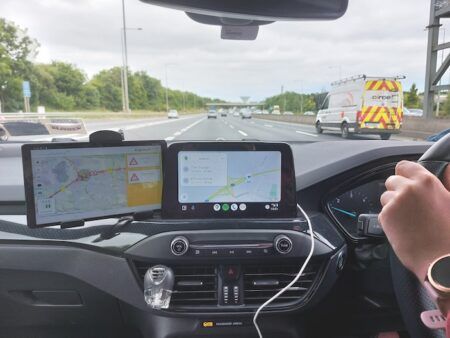London’s CAV testbed – The Smart Mobility Living Lab (SMLL) – has become the UK’s first Connected and Automated Vehicle (CAV) testbed to fully open its doors to customers. Designed to accelerate the commercialisation of market-ready future transport and mobility solutions, SMLL is the place to go for advanced real-world CAV and new mobility testing.
SMLL brings together technology, public infrastructure and transport experts to provide a unique testing ground; part of the step to place the UK at the centre of the future mobility revolution.
The facility will enable international technology and service providers to study an entire connected transport environment which is an essential step to make their products and services market-ready. This includes organisations from traditionally unrelated sectors such as energy, retail, and communications. At a time when CAV technology is set to play a major role in the exciting transport revolution happening in the UK, SMLL is ready to help accelerate transport transformation initiatives across the nation.

The road to an automated transport future is governed by the level of trust existing among users and the wider community. Only a programme of rigorous and transparent testing will provide a robust safety case. Innovations are already available to improve the performance of drivers by enhancing their road awareness and subsequently the safety of other road users. Whilst these new measures are already becoming integrated into car design, a new generation of connected vehicles are also set to revolutionise the way people consume transport, and travel around efficiently, with many new business models in rapid development.
SMLL are delighted to welcome Carlota Da Veiga Pestana to the team as Sales Lead to lead the commercial success of the testbed. “Carlota will be pivotal in taking the SMLL concept – built by a consortium and part funded by government – and making it a core component of the TRL portfolio” said Lucien Linders, General Manager of SMLL. “Customers can access any of TRL’s consultancy and technical services via SMLL, and the testbed itself is a vital component in the delivery of many of TRL’s projects. With its services based around the three integrated pillars of Test, Simulate and Innovate, SMLL and its partners provide a compelling offering to the global marketplace of companies racing to exploit the potential of new mobility technologies and solutions. Carlota will be customers’ first point of contact with the company”.

Compared to other testbeds in the world SMLL is unique and offers many advantages. The London facility provides a diverse, challenging and advanced connected urban environment for CAV and wider mobility solution development and testing. Linders explains: “The two styles of road which form the testbeds in Greenwich and at the Queen Elizabeth Olympic Park locations, provide environments which are totally unconstrained. Overall, the testbed is 24km of urban roads which are closely monitored by instrumentation, featuring both single and multi-lane carriageways, including roundabouts and 40+ other types of road features common to UK-road infrastructure, resulting in the most comprehensive CAV and CAM testing site there is.”
“We have opened at a time when the demand for transport innovation is intensifying,” continues Linders. “The need for decarbonisation, alongside initiatives including increasing shared mobility, and new ways of moving goods about, have brought the requirement for SMLL to the forefront of the transport agenda. Despite the impact of Covid-19, because the testbed is a live environment, it is genuinely ‘open for business’ and we are confident we can deliver vehicle and technology trials safely. Our Innovation Community events may have to remain virtual for a time, but the collaboration has not stopped and the R&D projects we are involved in are all carrying on”.

The Smart Mobility Living Lab is currently working in support of major CAV projects Endeavour, ServCity and Darwin. These innovation projects are progressing the research and understanding started in GATEWay, then evolved in CAPRI, DRIVEN and HumanDrive. All three are bringing trials of automated vehicles to London because the complexity of the testbed means that if the technology works here, it will work anywhere. In addition, SMLL is providing expertise to help with sensor technology validation, and working with infrastructure and vehicle providers to exploit connectivity with traffic signal data. TRL is also lending its human factors team to assist with studies of pedestrian behaviour around specific road features to understand the implications for the AI systems providing situational awareness of driverless vehicles.





